- Home
- Michael Wallace
Not Death, But Love (Quill Gordon Mystery Book 3) Page 2
Not Death, But Love (Quill Gordon Mystery Book 3) Read online
Page 2
“Was it your first Father’s Day with her?”
Peter nodded. “First since she was a toddler, anyway. As you know, my second wife and I don’t get along very well, even now. Heather’s grown up hearing a lot of bad things about me.” He paused. “Some of them might even be true.”
“But she called you, right?”
“Out of the blue. And I don’t think she told her mother. She said she wanted to take me to brunch for Father’s Day. She just finished her freshman year at UC-Santa Cruz, so we met at a place in Los Gatos.” His voice was beginning to shake a bit, and he turned to look out the window. Gordon said nothing and slowed down. “She asked a lot of questions, and I answered the best I could. I’m still processing it. How about you? Do anything special for the day?”
“Actually, it worked out well for me, too. I took the judge out for brunch, just the two of us. My sisters were going to take him and mom out for dinner last night. He got a bit of a double-dip.”
“My dad died 15 years ago,” Peter said. “All the time I was growing up, I never saw him without a cigarette in his mouth. At age 54, he keeled over from a heart attack at work and was gone by the time the ambulance arrived. He hadn’t been seeing a doctor, so they did an autopsy. Turned out he had stage three lung cancer, too.”
“That’s tough.”
“In hindsight, the heart attack may have been a blessing. But it left us with some unsettled business that’ll never be resolved.” He sighed. “How do you and your dad get along?”
“Reasonably well, all things considered. But I guess we still have some things to clear up, too.”
Peter raised his eyebrows.
“What can I say?” Gordon said. “He’s my father and I’m his son. We don’t always see eye to eye. Here we are.”
Stanhope House was a large two-story house, built in the late 1880s, set back from the highway behind about 40 yards of immaculately tended lawn, dotted with pine trees and with a row of aspens marking the northern boundary of the property. There were eight guest rooms in the main house and another six in a renovated carriage house behind it. Gordon stopped on the driveway in front of the main entrance, set a few feet above the ground at the end of a flight of six steps and flanked by a broad porch, shaded by overhang most of the day. The honeymooners in Room 7 were sitting in a rocking bench to the right of the door, holding hands and oblivious to the world.
“I’ll be right back,” Peter said.
As he started for the house, Gordon looked down and saw Miss London’s envelope leaning against the center console.
“Peter!” he shouted, transferring it to his left hand and holding it out the window. “Can you put this in your room for the time being?”
He came back for it and bounded briskly up the stairs. Two minutes later, wearing his sunglasses, he was back in the passenger seat.
“I thought we could drive counterclockwise around the lake,” Gordon said. “There’s a paved road all around.”
“Coriolis effect,” said Peter. “Well, we are in the Northern Hemisphere.”
They turned right from the driveway, heading back into town. Stanhope House was at the northern end of it, at the older part, where the original settlement had been. A hundred feet from the inn they came to the town’s entrance sign, with its slogan, “Welcome to Arthur — Your Four Seasons Recreation Area.” Below that were the logos of the various clubs in town: Elks, Lions, Masons, and so on. Gordon noted that the Rotary Club, to which his father belonged in San Francisco, met Thursdays at noon. To the right of the welcome sign was another, smaller but clearly distinct. “You’re in Cougar Country,” it read, and below that, “1962 Northern California Division II Basketball Champions.”
“Champions,” Peter said. “Men or women, do you suppose?”
“No Title IX then, so it had to be men. And back then, they were called boys.”
“I stand corrected. Do you know the story?”
“I could hazard a guess, but it shouldn’t be hard to find out. It was probably one of the biggest things that ever happened here, and lots of people would remember. It wouldn’t surprise me if half the team’s still living here.”
The state highway was the main commercial street, and Gordon drove slowly, passing Nelson’s Hardware and Sporting Goods, the Forest Clarion newspaper office, Proffit’s Supermarket, Garbini’s Italian Restaurant, the Dew Drop Inn Saloon and Social Club, Fred’s Barber Shop, and the Galloping Goose Gift Shop, among other establishments. After a quarter mile they came to the bridge crossing the North Fork of Hawk River, which was running high and fast after the wet winter. To the left on the other side of the bridge, Ponderosa Street ran parallel to the river, passing a park with a large lawn and shaded picnic area.
The part of town on the south side of the bridge was more recently developed, but not necessarily more charming. In short order they passed a post office building with a pinewood front that looked to be ten to 15 years old, a relatively small Safeway, a Rite Aid drugstore, and a Ben Franklin five and dime. Small, locally owned restaurants were mixed in with McDonald’s and KFC; there was a Chevron station, a Shell station, and several mini-marts selling non-branded gasoline. Lodging was represented by the Pine Cone, Lakeview (with no lake view), Hawk Valley, Buckhorn and Lumberjack motels.
Just beyond the Shotgun Café, Gordon turned left onto Union Street.
“A detour, so soon?” Peter said.
“This is where the courthouse and high school are.”
The courthouse, which they later learned was built in the early 1960s, was a nondescript two-story concrete building. Its architects had made only one concession to style or comfort: large windows all around, allowing the bright mountain light into the building. Across the street from the courthouse was the public library, about the size of a decent branch library in San Francisco. It was a single-story building with the left side ten feet higher than the right, and a channeled steel roof with no gutters connecting the two.
“Probably easier for the snow to melt that way,” Gordon said.
They continued down the street. The next two blocks were residential, but the second house down from the courthouse had a shingle over the porch proclaiming it to be the law offices of Cameron A. Winters, Esq. The houses on the street were all one story and of postwar vintage. Many of them had carports, and typically one side of the carport was stacked floor to ceiling with cut firewood.
“You wouldn’t think they’d need that wood in the summer,” Peter said.
“Ever heard the old joke about life in the mountains?” Gordon said. “They say the weather’s nine months of winter and three months of bad skiing. That wood’s drying out now so they can start burning it in mid-September.”
Union Street dead-ended a quarter mile from the lakeshore, with the high school, out for the summer now, taking up both sides of the last block. On the right side were the administration building, classrooms and auditorium — wood-paneled exteriors with sloping sheet-metal roofs painted crimson, the school color. A sign in front of the building closest to the street announced that summer session would begin next week, and its framing read: “President Arthur High School, Home of the Cougars. Built 1964.”
Gordon stopped the car for a minute and they looked.
“Built two years after the basketball team won the championship,” Peter said. “I’ll bet the school board decided that would be a good time to float a construction bond.”
“No bet. I think you’re right.”
“Since you’re the history major, tell me what President Arthur was famous for?”
“Not much. He took over when James Garfield was assassinated in 1881. Probably best known for civil service reform.”
Peter nodded. “That explains why the team’s called the Cougars. Somehow, the Fighting Bureaucrats wouldn’t exactly strike fear into the hearts of opponents.”
“Around here it might.”
Gordon started the car forward again and turned it around at the loop at the end of th
e street. Now the athletic facilities opposite the classrooms were on their right. The Gary A. Bowman Gymnasium, a tall rectangular building, came up to the street near the edge of the loop. On the lake side of it was a large parking lot, presumably for games. On the other side was a large open area with four outdoor basketball courts (the nets made with metal chain to better handle the elements) and two tennis courts enclosed by a chain-link fence. Four young men were playing a two-on-two basketball game (skins and shirts) on one of the courts.
“Want to go show them how it’s done?” Peter asked.
“No thanks. I’m getting to the age where they might show me.”
Behind the basketball courts, they could see the aluminum bleachers, marked-off football field, and scoreboard of what a prominent sign identified as Leonard Iverson Field.
“If you’re going to ask me who Gary A. Bowman and Leonard Iverson were,” Gordon said, “the answer is I don’t know. But the smart money would be they were coaches.”
He drove back to the state highway and turned left, heading out of town. After a half mile they were at the outskirts. Two miles beyond that, on the right side of the road, was the Forest County Airport, a single concrete strip long enough to land a smokejumper or small private jet, with a small administration building that looked like a large mobile home and shared quarters with a small coffee shop. It looked as if it had been put up temporarily a quarter century ago and never replaced with a permanent building. They were driving away from the lake at this point, but just past the airport they turned left on to another state highway heading south, more or less following the west shore of the lake.
They drove south for ten miles. On the right side, every so often, roads, most of them dirt, headed off into the mountains from the valley. Gordon pointed out two: The Bull Meadow road, which led to Copper Creek, one of California’s wild trout streams, and the road to Bottom Lake, a reservoir he thought they might check out during their stay.
On their left the landscape continuously changed. At some places they had a clear view to the lake. At others there was dense pine forest through which nothing could be seen. At one point, the highway climbed more than a hundred feet up the side of a cliff, before descending again. Some of the area was developed: two campgrounds and two subdivisions of vacation and permanent homes, set back from the highway and nestled among the pines well enough to be largely invisible to passing motorists.
Eventually, they came to a sign pointing left to County Road A22, labeled “Año Nuevo Dam Road/The Peninsulas.” Gordon turned onto it. It was two lanes, paved (but poorly) with no shoulder. They followed it through a dense forest for a quarter-mile, then up a slight rise, at the top of which it became apparent they were about to cross the top of the dam. There was a turnout, large enough for two or three cars, just before the dam and Gordon pulled into it and turned off the engine. Even with the windows closed, they could hear the sound of cascading water.
“Let’s check the spillway,” Gordon said.
It was after ten a.m. now, and the temperature had risen into the mid-60s, with the faintest of breezes wafting a bouquet of pine needles and campfire smoke through the air. The road across the dam had a waist-high guardrail on either side and an elevated sidewalk two feet wide — just enough to accommodate, if not encourage, pedestrians. They walked about 50 yards to where the road crossed a 60-foot notch in the dam; it was the overflow spillway to release extra runoff early in the season. Stopping in the center of the notch, they looked down to see a fast and deep torrent of water washing under them, then down a steeply angled channel where it frothed, all white, to a riverbed about 150 feet below. The noise was so loud they had to shout to be heard over it.
“This is what happens after a wet winter,” Gordon yelled.
Peter nodded. “I’m getting vertigo. Let’s go back.” He turned back toward the Cherokee, and Gordon followed him.
Crossing the dam, they passed one car coming the other direction. On the other side, they went through a section of forest, during which they crossed Año Nuevo Creek, only ten feet wide during spring runoff. Then there was a stretch of about a mile and a half where there were homes on either side of the road, facing the lake, followed by a rise and drop through a brief forest stretch in which they crossed Trout Creek, slightly smaller than Año Nuevo. As they got back near lake level, Gordon began looking more closely at the left side of the road. He soon saw a log arch rising 15 feet above a driveway and turned under it into Shore Acres Resort.
Almost immediately they were on a gravel road that veered right through a glade and emerged into a large, well-tended lawn on the left, with volleyball and badminton nets, a swing set, a carousel, and several picnic tables. The tables were empty, but a half dozen children, occasionally watched by two mothers talking to each other, were using the swings and carousel, their shrieks of delight carrying across the lawn. On the right side of the road, facing the lawn, were eight rustic pinewood cabins, each with a deck and parking space. The railings on most of the decks were draped with drying swimsuits and beach towels. Gordon stopped in front of one.
“Juniper,” he said. “That’s where we stayed.”
“You were here 15 years ago?” Peter said.
Gordon nodded. “Right about this time of year.”
“Any particular reason?”
“I’d just graduated from Cal and was at a turning point. I had three options, really. “My father wanted me to go to law school, and as a gesture to that, and to keep my options open, I applied to Santa Clara and McGeorge. Santa Clara accepted me, but I didn’t really want to go. I also had an offer to play basketball for a team in Germany.”
“But you didn’t?”
“The money wasn’t great, and I would have been tenth or 11th man on the roster. It wasn’t what you call a growth opportunity. Still, I thought about doing it for a year, just to buy time. Then, a week before graduation, I got a call from Howell, Burns & Bledsoe asking if I’d like to interview for an associate broker position.
“How did they find you?”
“Burns and Bledsoe, it turns out, were big Cal sports fans.”
“But not Howell?”
“Dead, I’m afraid. Though in some of the crowds at our games, no one would have noticed. Anyway, they thought I might be able to bring in some athletes as clients. They made a good offer, and I was ready to take it. The judge wasn’t happy, and when he was coming up here for a week, I agreed to go with him so we could talk things out.”
“How did that go?”
“We agreed to disagree, but only because he had no choice. I was legally an adult and had the law on my side. It was the only argument he understood.”
“Any reason for coming here specifically?”
“He was trying case too hot for the locals. An attorney shot his wife during an argument. Didn’t kill her, but it was still attempted murder. Judge Fletcher — I wonder if he’s still around? — took himself off it because he knew the lawyer so well. The district attorney’s office wanted nothing to do with it, either, so the state attorney general’s office handled the prosecution.” He paused and looked down at the pier. “Judge Fletcher took me fishing a couple of times, though. I’m going to get a bottle of water.”
He drove to the far side of the lawn where there was a log building that hosted the office, store and a small café. It sat at the top of a road leading downhill to the right toward a pier and boat launch. He stopped in front of the building, turned off the engine, went up three steps to the store and was back in two minutes. Peter asked how the trial turned out.
“He was acquitted,” Gordon said. “I know. I was surprised, too. It seemed like an open-and-shut case, and his defense — that the gun went off when he was trying to take it away from her — was pretty lame and didn’t match the other evidence. I asked the judge about it.”
“Judge Fletcher or your dad?”
“Number two. He gave me that tight-lipped smile of his and said, ‘Hometown verdict, son. He was guilty, bu
t he grew up here, while his wife was from the Bay Area. To the jury, she was an outsider.’ That’s all he said.”
“Frontier justice,” Peter said. “But I wonder if your schoolteacher friend was thinking of something like that when she gave you the envelope. You know, that people here hang together so much she couldn’t trust anyone she knew with it.”
“Could be. We’ll know more when we have lunch with her, but let’s not let it interfere with our fishing.”
He turned left on the county road and continued driving more or less north along the east shore of the lake, past lakefront homes, a couple of older resorts, a campground, and stretches of mostly empty forest. At a sign reading “East Peninsula,” they turned left again, and after driving through more forest and a small meadow, came to an area with a golf course on the right and a tract of homes, all 20 years old or less, on the left. The golf course was doing a brisk business, judging from the number of players in shorts and polo shirts, and at one point they drove by a driveway to the clubhouse. Then the road dipped downhill and came to a commercial area consisting of small strip malls on either side of the road. Between them they held a medium-sized grocery store, a Bank of America, a small hardware store, a tiny post office, a pizza parlor and hamburger joint and a couple of gift shops. The strip mall on the left was called London Center.
“Any connection to our friend from this morning?” asked Peter.
“I don’t know, but it’s not that common a name, so probably.”
He turned right at the shopping area and took a road that followed the western shore of the peninsula. There were more lakeside homes and another small resort.
“Lot more built up since the last time I was here,” Gordon said.
The road looped around the peninsula, back past the shopping center again, then out to the county road, which they followed again for two miles before turning on to the West Peninsula.
“There were two creeks,” Gordon said, “that used to flow into the north fork of the Hawk River before it was dammed. The reservoir filled up the creek beds, but the ridges on either side were above water and became two peninsulas jutting out into the lake. A lot of summer homes here now, plus some places where the better-off locals live.”

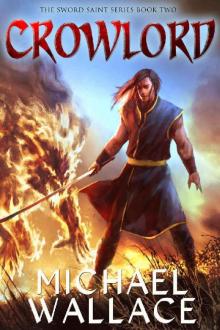 Crowlord (The Sword Saint Series Book 2)
Crowlord (The Sword Saint Series Book 2) Crowlord
Crowlord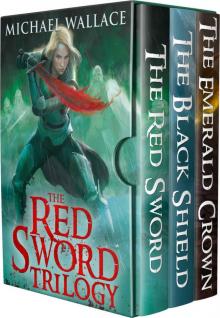 The Red Sword- The Complete Trilogy
The Red Sword- The Complete Trilogy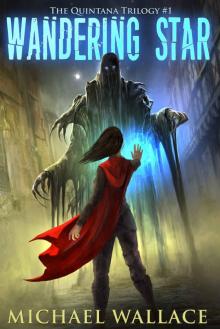 Wandering Star (The Quintana Trilogy Book 1)
Wandering Star (The Quintana Trilogy Book 1)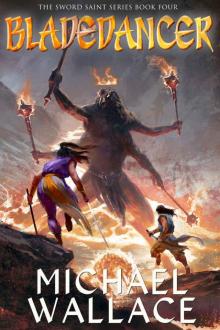 Bladedancer
Bladedancer Sword Saint
Sword Saint The Alliance Trilogy
The Alliance Trilogy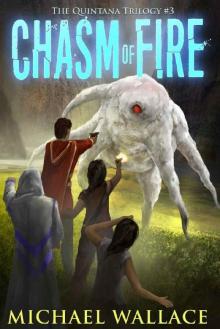 Chasm of Fire
Chasm of Fire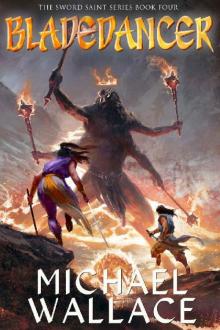 Bladedancer (The Sword Saint Series Book 4)
Bladedancer (The Sword Saint Series Book 4)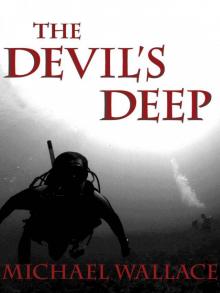 The Devil's Deep
The Devil's Deep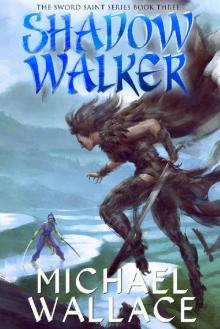 Shadow Walker (The Sword Saint Series Book 3)
Shadow Walker (The Sword Saint Series Book 3) Starship Blackbeard
Starship Blackbeard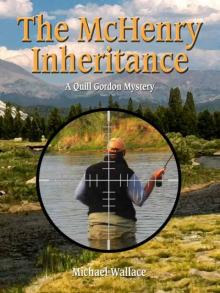 The McHenry Inheritance (Quill Gordon Mystery Book 1)
The McHenry Inheritance (Quill Gordon Mystery Book 1) Sun King (The Void Queen Trilogy Book 3)
Sun King (The Void Queen Trilogy Book 3)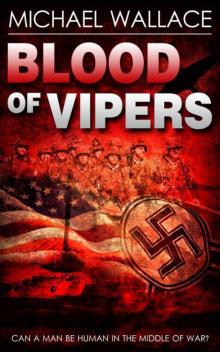 Blood of Vipers
Blood of Vipers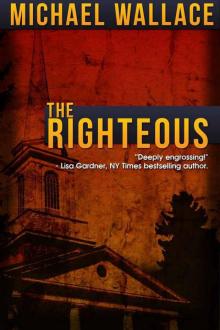 Righteous - 01 - The Righteous
Righteous - 01 - The Righteous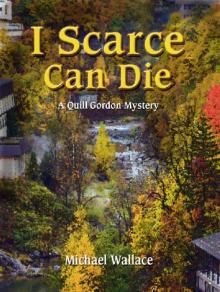 I Scarce Can Die (Quill Gordon Mystery Book 5)
I Scarce Can Die (Quill Gordon Mystery Book 5)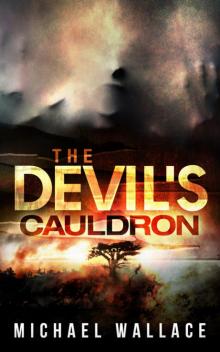 The Devil's Cauldron
The Devil's Cauldron The Wicked (The Righteous)
The Wicked (The Righteous)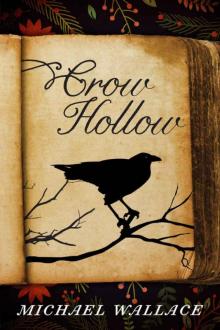 Crow Hollow
Crow Hollow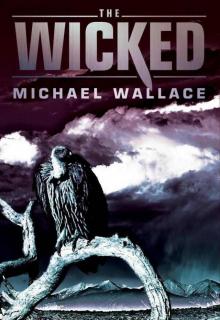 Righteous03 - The Wicked
Righteous03 - The Wicked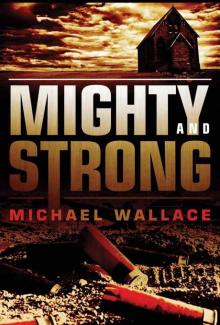 Righteous02 - Mighty and Strong
Righteous02 - Mighty and Strong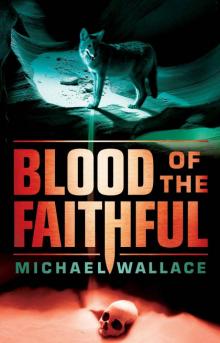 Blood of the Faithful
Blood of the Faithful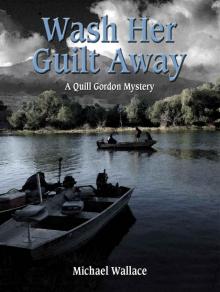 Wash Her Guilt Away (Quill Gordon Mystery Book 2)
Wash Her Guilt Away (Quill Gordon Mystery Book 2)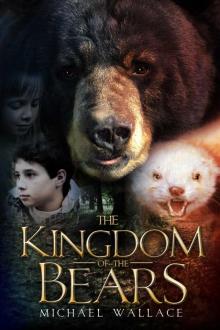 The Kingdom of the Bears
The Kingdom of the Bears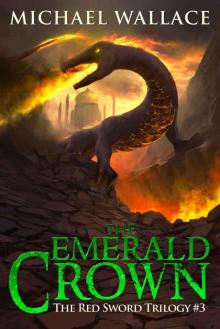 The Emerald Crown (The Red Sword Trilogy Book 3)
The Emerald Crown (The Red Sword Trilogy Book 3)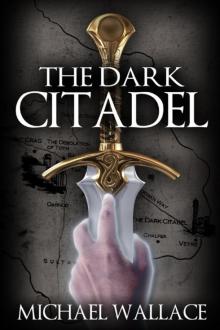 The Dark Citadel
The Dark Citadel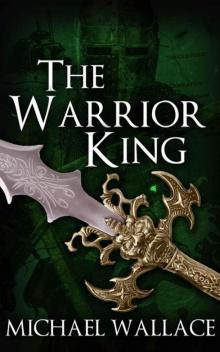 The Warrior King (Book 4)
The Warrior King (Book 4) Rebellion of Stars (Starship Blackbeard Book 4)
Rebellion of Stars (Starship Blackbeard Book 4)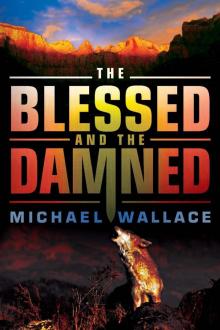 Righteous04 - The Blessed and the Damned
Righteous04 - The Blessed and the Damned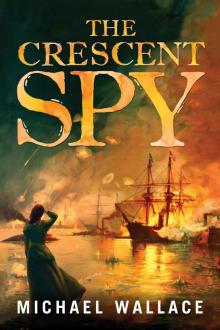 The Crescent Spy
The Crescent Spy Queen of the Void (The Void Queen Trilogy Book 1)
Queen of the Void (The Void Queen Trilogy Book 1)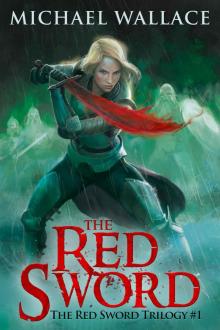 The Red Sword (The Red Sword Trilogy Book 1)
The Red Sword (The Red Sword Trilogy Book 1) The Sentinel (The Sentinel Trilogy Book 1)
The Sentinel (The Sentinel Trilogy Book 1)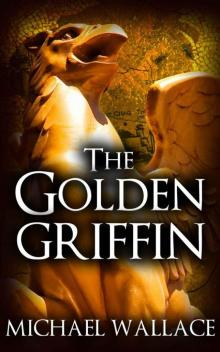 The Golden Griffin (Book 3)
The Golden Griffin (Book 3)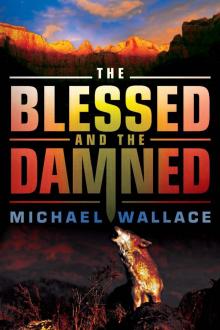 The Blessed and the Damned (Righteous Series #4)
The Blessed and the Damned (Righteous Series #4)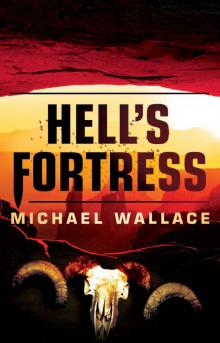 Hell's Fortress
Hell's Fortress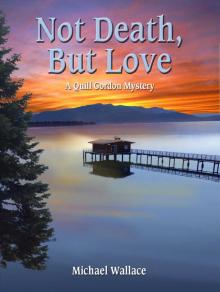 Not Death, But Love (Quill Gordon Mystery Book 3)
Not Death, But Love (Quill Gordon Mystery Book 3) Destroying Angel
Destroying Angel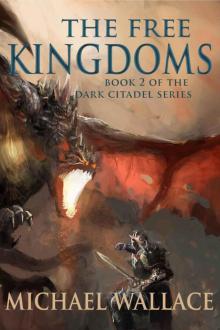 The Free Kingdoms (Book 2)
The Free Kingdoms (Book 2) Dragon Quadrant (The Sentinel Trilogy Book 2)
Dragon Quadrant (The Sentinel Trilogy Book 2) Shattered Sun (The Sentinel Trilogy Book 3)
Shattered Sun (The Sentinel Trilogy Book 3)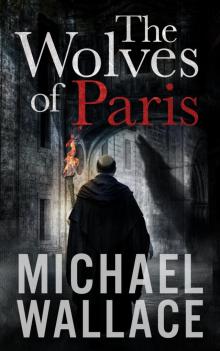 The Wolves of Paris
The Wolves of Paris Lords of Space (Starship Blackbeard Book 2)
Lords of Space (Starship Blackbeard Book 2) Dreadnought (Starship Blackbeard Book 3)
Dreadnought (Starship Blackbeard Book 3)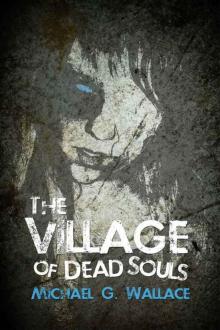 The Village of Dead Souls: A Zombie Novel
The Village of Dead Souls: A Zombie Novel The Black Shield (The Red Sword Book 2)
The Black Shield (The Red Sword Book 2)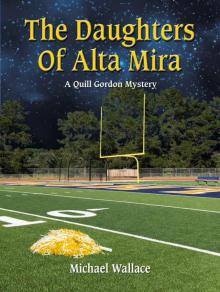 The Daughters Of Alta Mira (Quill Gordon Mystery Book 4)
The Daughters Of Alta Mira (Quill Gordon Mystery Book 4) Mighty and Strong (The Righteous)
Mighty and Strong (The Righteous)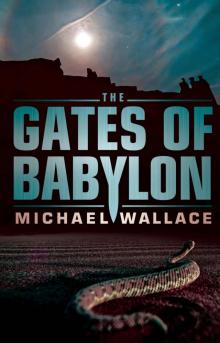 The Gates of Babylon
The Gates of Babylon